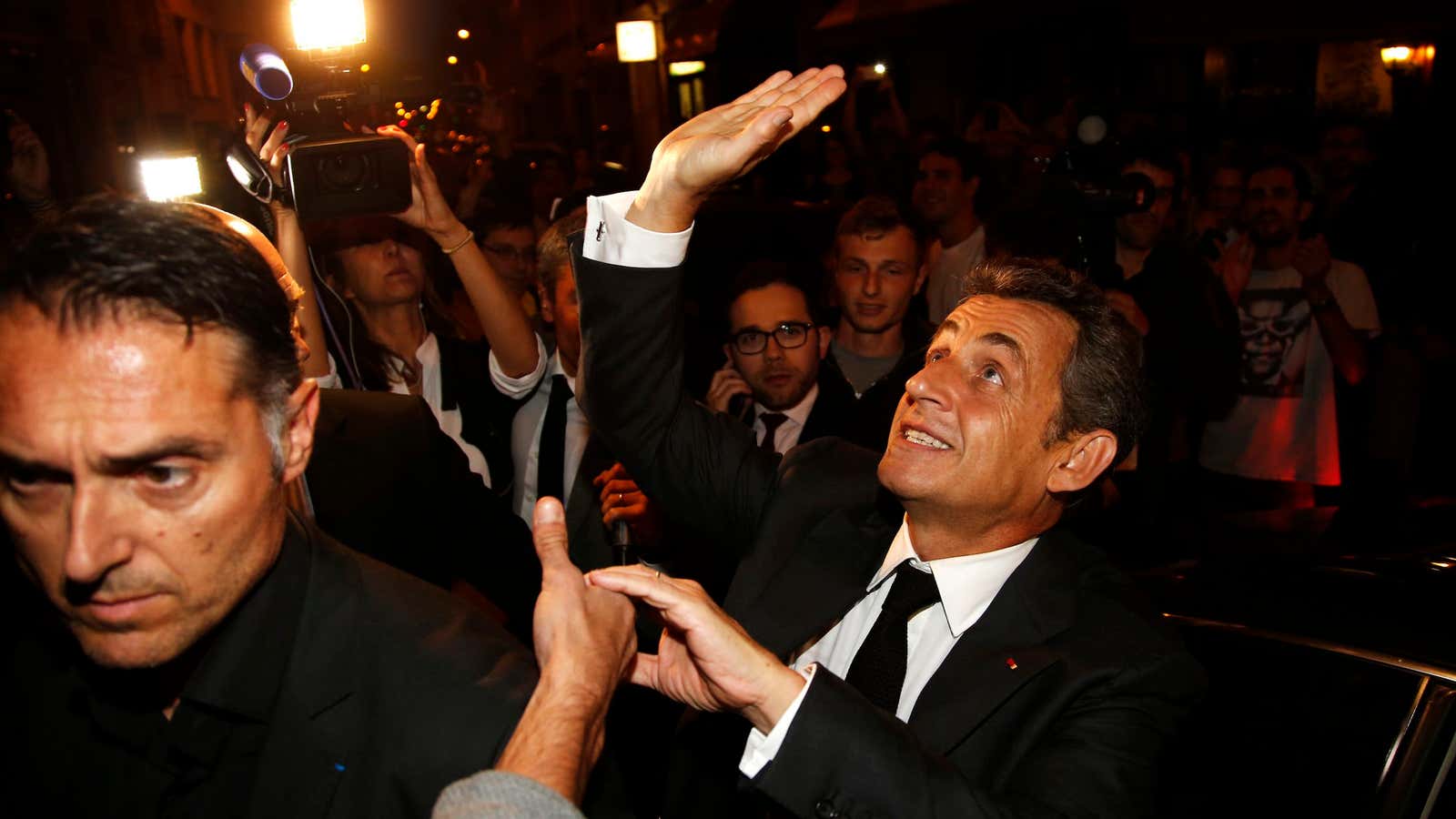The former French president, Nicolas Sarkozy, announced his return to politics on Friday. Two years after being defeated by Francois Hollande and vowing to leave public life, Sarkozy said on his Facebook page (in French) that he will run for head of his rightist UMP party in November. (The post is approaching 90,000 likes.)
Since Sarkozy resigned in defeat, the UMP has been wracked by divisions between two of his potential successors. Sarkozy addressed that in his post, which read more like he was running for head of state than head of his party. “It is a dereliction of duty to remain a spectator in the situation that France finds itself, facing the disintegration of the political debate and the persistence of ridiculous divisions in the opposition,” he wrote. Assuming Sarkozy does win the UMP nomination and runs against Hollande in 2017, it’s worth looking at how France’s economy looked the last time he ran the country:
The number of jobless people rose sharply…
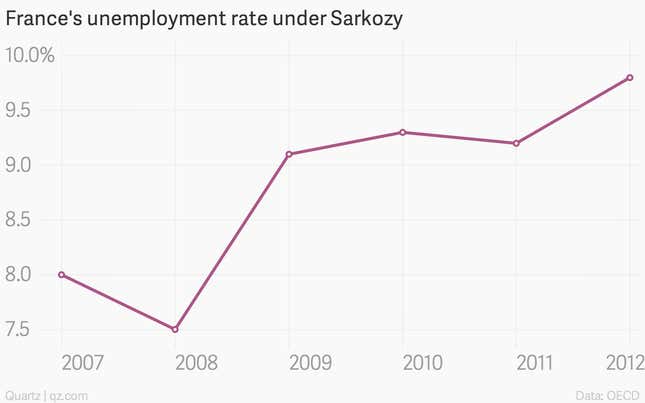
…while foreign investment dropped sharply.
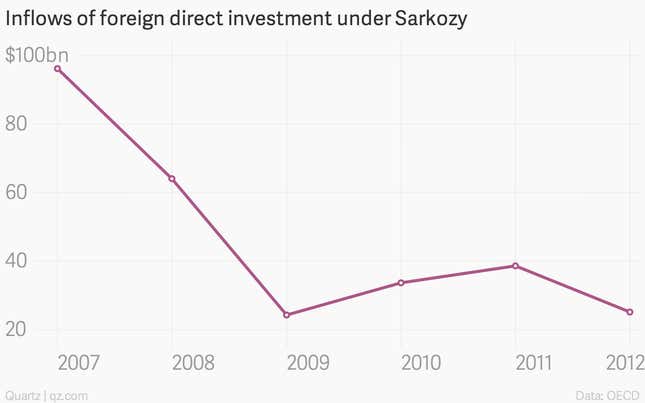
Government debt as a share of the total economy rose rapidly…
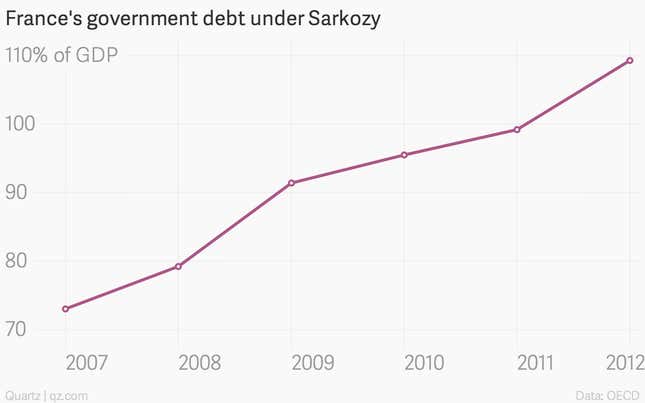
…while revenue stayed flat.
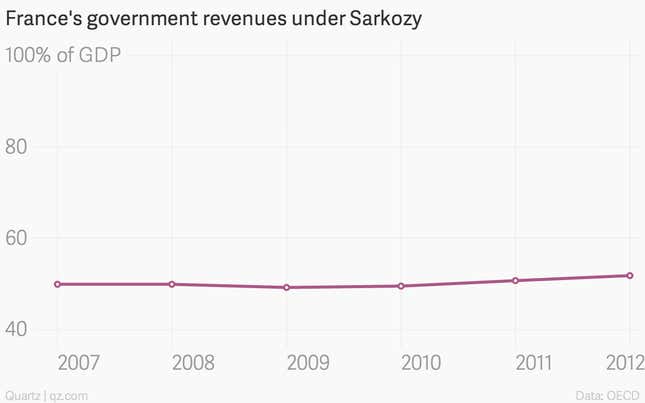
None of these stats are great. Many problems were due to the financial crash and the ensuing European debt crisis, but Sarkozy tried to address them partly by challenging France’s comfortable way of life: by raising the retirement age from 60 to 62. (Other countries have long ago crossed this bridge: Germany’s retirement age is 67 and the UK’s is 68, for example.) Sarkozy said in his post that he has reflected and learned from his mistakes.
And the problems of high unemployment and stagnant growth continue to haunt Hollande, whose approval rating is around 13% (link in French). Farmers are protesting against falling living standards by setting fire to tax offices. The mood in France is fairly grim. Perhaps Sarkozy feels the French know they made the wrong choice.
Yet his return may also be a boon to Hollande; few figures in French politics are as divisive as Sarkozy. Many French voted against Sarkozy, rather than for his successor, making him the first president in France who ran and failed to be re-elected since 1981. ”The speed and glee with which the ruling party reacted to news of the ex-president’s comeback show how much it needs its primary hate figure,” the BBC’s Paris correspondent Hugh Schofield wrote. At any rate, Sarkozy’s comeback makes the 2017 election feel an awful lot closer.
